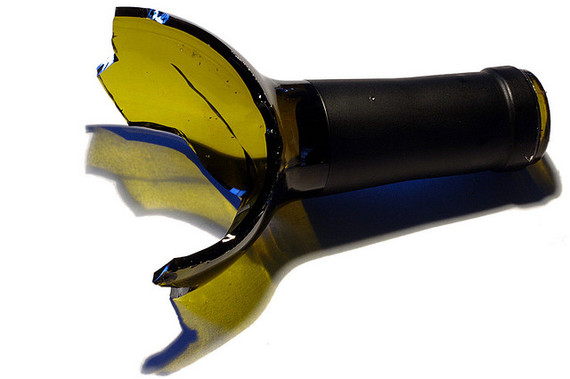I saw him kneeling on the ground on the verge of tears, stains of deep dark red spreading all around him penetrating the concrete floor.
There were shards of glass everywhere with a wicker basket holding the last remnants of the bottle of Chianti. I had brought it back from a high school trip to Italy. A present that had been sitting in the refrigerator of the garage for who knows how long.
I wondered why he was so upset about a broken bottle of wine. Part of me was angry -- and maybe a little insulted -- that it had been sitting in the refrigerator in the first place instead of being poured and celebrated. Why would you not enjoy what you have?
If you neglect something for long enough it can start to decay.
I wondered if the wine was still good. Had the taste changed, becoming bitter or too strong? Or was it still perfectly fine to enjoy.
I will never know.
People respond to brokenness in different ways. Some attempt to put the pieces back together preserving what was once whole. Some rush to replace what's been broken ignoring the mess around them. Some clean up the mess and move on.
Sometimes that which is broken is just a symbol of something deeper inside of us that isn't being acknowledged or addressed. The pieces no longer fit together the way they used to, and we try desperately to put them back together.
Or we set the pieces aside and hope to fix things later, ignoring the fact that some pieces are completely missing.
But we want to be complete. We want the end result. The vision we have in our brains of what we are supposed to be. The perfect moment to pour that glass of Chianti.
If we are lucky, we are mostly complete. We make sure things aren't neglected or decaying, that the bottle isn't vulnerable to a big, sudden crash on the concrete floor.
But crashes happen. Things break. And those that are close enough to the sharp edges of the glass get hurt.
Eventually those cuts heal, though the memory of what once was whole brings the emotion to the forefront. And the replacement bottles don't always make things better.
If we were always complete, then how would we ever truly feel love or hate or passion?
How would we know what fuels our soul or drives our heart?
How would we live?
We would never enjoy that glass of Chianti from the wicker bottle thoughtfully brought back from Italy.
Of course, it's not really about the wine in the end.
photo credits: Jonathan Cohen, Flickr and Human Unlimited
This post was also published on anotherjennifer.com
